Pandemic Victories: Using time at home with my kids 24/7 to accomplish goals (teach skills!) outside the realm of “schooling” (like showering & sleeping alone!)
For those new to this website:
Tamara Rubin is a multiple-federal-award-winning independent advocate for childhood Lead poisoning prevention and consumer goods safety, and a documentary filmmaker. She is also a mother of Lead-poisoned children (two of her sons were acutely Lead-poisoned in 2005). Since 2009, Tamara has been using XRF technology (a scientific method used by the U.S. Consumer Product Safety Commission) to test consumer goods for toxicants (specifically heavy metals — including Lead, Cadmium, Mercury, Antimony, and Arsenic). Tamara’s work was featured in Consumer Reports Magazine in February of 2023 (March 2023 print edition).
Saturday — December 5, 2020
Yesterday I shared two (well three) victories on my Facebook page. Each of these victories is something I would likely not have been able to accomplish were it not for the circumstances of the pandemic. So yes, I guess what I am saying is, despite the great misfortune and widespread misery this tragedy has visited upon the world, I have to “thank the pandemic” for the opportunity to have done these things.
As most of my readers know, three of my children have disabilities — primarily a result of their Lead exposure. Interestingly enough, the child with the lowest documented blood Lead level is my most complicated child (the one I have to spend the most time and energy monitoring, managing, coaching, protecting, and redirecting).
I tested positive for Lead when I was pregnant with Charlie (likely as a result of the incident that acutely poisoned his two older brothers), and so he was the only child (that we know for certain) who was also Lead-poisoned in utero. I’m talking about my youngest son. He is currently 12 years old. In the picture above (taken right before the Pandemic started) he is in the center, between two of his three older brothers.
(Continue reading below each of the images!)
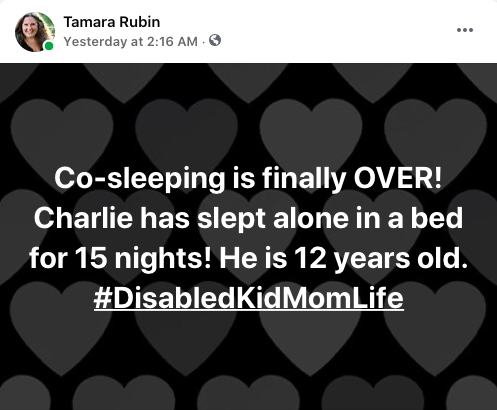
Goal #1 Accomplished: An END to Co-Sleeping!
Colescott (1996-2002)
I have been co-sleeping with at least one child ever since my youngest son was born, 24 years ago in July! I didn’t plan it that way, of course — and with the first three children it was relatively “organic.” I co-slept with each of my three oldest boys until they were six years old. When Colescott (my first) turned 6, his little brother was born — so he was booted out of the family bed into his own room — and a medically fragile nursing newborn (A.J., born in 2002) took his place.
A.J. (2002-2008)
While I am a firm believer in co-sleeping a nursing babe (so mom can get the most sleep possible while nursing), and A.J. nursed for something like 30 months (until he was 2 and 1/2 years old), we did attempt to have A.J. sleep alone in a crib when he was about 18 months old. He still has the “Frankenstein scar” from that failed experiment (where the doctors sewed him back together!).
He literally JUMPED out of the crib (breaching all of the multiple safety measures in place), and his jawbone pierced the flesh of his face — requiring 8 stitches (I — with stout heart — had to hold him down while they stitched him up… there was so much blood!). I had to hold my screaming baby down in the emergency room (with nearly my whole torso on top of his to help keep him still while I wrapped my arms around him so I could hold his tiny arms and legs still, too) while the doctors actually used scissors to cut off the “extra” flesh that was too swollen to stuff back into his face so that they could sew him back up with a relatively clean line under his chin.
That incident was enough for me to say — “ok … so that crib-shaped object in the boys’ room is obviously NOT for sleeping … let’s use it to store freshly cleaned laundry from here on out!” This was my use philosophy (about cribs) for the remainder of my time parenting infants and toddlers. I was not willing to risk subjecting another one of my children to that kind of trauma again!
For me, this incident with A.J. solidly reinforced the benefits of co-sleeping:
- Baby is right next to you,
- Baby cannot fall off of the bed (if you arrange your bed correctly!),
- Baby sleeps better,
- Baby sleeps when you sleep,
- You don’t need to fully wake for nursing (so mama sleeps better, too!),
- If something bad happens you know right away and can act very quickly,
- You can monitor the baby’s breathing and temperature much more easily if the baby sleeping right next to you when they are not feeling well.
Avi (2005-2011)
Avi was born in January 2005 (during a rare Portland winter ice storm!).
Once Avi was born, A.J. (who was still just 2 and 1/2 at the time) continued co-sleeping with me (and with Avi) until A.J. was about 6 years old — so we were all three together in a queen-sized bed through about 2008. (My husband had another queen-sized bed in the “guest room,” Lol!)
This meant that for a little more than three years, I was co-sleeping with two children (including one nursing baby/toddler) most of the time! Luckily they also liked to snuggle and sleep together (without mama!) in a separate bed on occasion. At just 2 and 1/2 years apart, these two boys are closest in age of all four of my boys. They are still actually best buddies (at 15 and 18 years old now) and A.J. is an amazingly caring big brother (and little brother, too!) across the board because of his close bond with each of his brothers his whole life. I think co-sleeping in a family bed (which included reading stories together each night and waking up together each morning) really helped to forge the amazing bond they have as brothers.
When he was a toddler, if Avi did start the night out snuggling with A.J. he always ended back with me at some point later in the night. The main reason for this was that I was his main food source! In response to the G.I. distress that came with being acutely Lead-poisoned at just 7 months old, Avi refused to eat solid foods until he was almost three years old. He nursed for his primary form of nourishment for most of the first 35 months of his life (much to my mother’s dismay — because she thought it was “disgusting” that I was “still breastfeeding an almost-three-year-old child”). I clearly remember the first time he actually ate a plate of solid food, he was almost three (it was cucumbers and fish sticks!).
Avi finally moved into his own bed (on the condition of sharing a room — and sometimes sharing a double bed — with his older brothers, A.J. and Colescott!) when he was 6 years old, too.
Charlie (2008-2020!)
When Charlie was born (July 2008), Avi was 3 and 1/2 years old (A.J. was exactly 6 years old, and Colescott was exactly 12 years old). As I had been co-sleeping with my children by that time for 12 years already, I decided to be a little more “intentional” about this aspect of my life in the next chapter (with my new baby, as a mom of four!). At this point of my life I was ready to intentionally design my exit strategy from co-sleeping!
Given Colescott and A.J. had each left the family bed at 6 years old (and those transitions were easy and organic at that age), it seemed like “six years old” was maybe the perfect age for a child to begin sleeping without an adult in the room. However, I wasn’t 100% sure what research and history (outside of the artificial norms imposed by accepted parenting culture in the United States) had determined was “best” for kiddos.
As I was waiting for Charlie to be born (I was in labor for a couple of weeks prior to his birth), I did a serious deep dive into co-sleeping. I explored the benefits, the historical and cultural practices around the globe, the medical, developmental and sociological benefits, etc. (much like many of the readers on LeadSafeMama.com do a deep-dive into Lead when they stumble onto my work). My research at the time focused on the natural rhythms, norms and practices — of non-industrialized cultures — looking mostly at examples of currently thriving non-industrialized African communities as a model for what might be “normal” in the absence of forced norms based on ideas and attitudes of western industrialized society (where many people consider it “odd” for a mother to sleep with her child for a long time or for a mother to nurse her child until they self-wean).
The model for raising children that resonated with me the most was the way some African tribes have all of the mothers and children sleep together in the same hut. My inquiry into these practices (and what was “normal” for these African mothers) brought me to the conclusion that I was very comfortable with what my children had chosen on their own: To sleep in their own beds starting at 6 years old (and sleep with me until then).
… But Charlie would have other plans …
As a result of this inquiry and research, I decided I would co-sleep with Avi and the (as-yet-to-be-named-at-that-time) baby (Charlie) until Avi was 6 years old (2011), and I imagined that at that point, Avi would move to his own bed and I would continue to co-sleep alone with Charlie until he was six years old (2014).
Of course when I made that plan, I had no way of foreseeing that Charlie would be disabled — I also did not know Charlie would be my most significantly disabled/ needy/ different child. In fact, Charlie’s disability didn’t really start being noticeable (or complicated/ challenging/ disruptive to our daily life) until 2013 (when he was about 5 years old — which is right about when the frontal lobe development impacts of being Lead poisoned as a baby start showing up in fairly profound ways). Consequently, I had to shift gears kind of late in my game plan with my decisions on co-sleeping.
An that brings us to now… (2020)…
Now (and for the past 7+ years) Charlie needs to be with me pretty much 24/7. No one else seems to be able to understand him or help him in the ways that I can (since I am the only person who knows his disability and all that it entails inside and out — and since, apparently, I am the only one who has infinite patience for this child).
For Charlie, it is very, very difficult to be without me. Even today — at age 12 — to go a single day (or frankly half a day) without seeing me, hearing my voice, and without connecting with me physically so I can calm him down, ground, and redirect him, will set him off on a destructive path (where he might begin injuring people and destroying property around him — in spite of his normally sweet and lovable nature!). Helping him ground usually looks like a hug, a snuggle, me giving him a back or foot rub, playing a game with him, or even making sure to feed him just the right food at the moment that he needs it.
As his mother, I am an irreplaceable grounding force for this giant (6 ft. tall) man-child, and being this for him is an enormous (and exhausting) responsibility and burden that monopolizes my life.
Things have gotten so complicated with him in recent years that I have even needed to bring him with me on business trips because no one — including my husband — could manage him safely (and especially not manage both Charlie and Avi together) without me there! As a result of Charlie’s extreme disability, I have continued co-sleeping with him even at 12 years old and after growing more than 6 ft. tall (with — to my exasperation — seemingly NO END IN SIGHT)…
The consequences of attempting to NOT co-sleep with Charlie would often turn violent. If I did not lay down with him in bed and work to strategically calm him down each night (sometimes when he was younger gently restraining him by wrapping him in a blanket “like a burrito”) and prepare him for eventual sleeping (by listening to music, or books on tape; reading to him, or rubbing his back until he fell asleep), he would often get up out of bed, run around, and start harassing his brothers (often hurting them by poking, prodding, throwing things, climbing on, or wrestling them — and always preventing them from sleeping!).
If I dared to attempt to sleep alone somewhere in the house (on a couch or an extra bed), he would sometimes also go after Dad — and get violent with him! Co-sleeping with Charlie in recent years became a necessary survival mechanism — because it was the only way everyone else in the house could get some sleep!
And then… Hello, pandemic…
As I said, one reason I needed to always sleep with Charlie was so other people in the house could get to sleep — so they (brothers and dad) could get enough sleep to work or go to school (which, for the last few years, meant getting up at some ungodly hour in the morning so they could leave for their long commutes by bus to school!). Taking school out of the equation meant I could engage others (mostly big brother, Avi, who is now 15-1/2) to help with bedtime, since he did not have to wake up at any specific time for school.
What has come next sort of happened magically, organically, and unexpectedly over the past two weeks. I believe the first night I slept alone (for this unbroken more-than-two-week stretch) was November 17th. Avi and Charlie have been listening to books on tape all summer (all the Harry Potter books, all the Percy Jackson books, The Lion The Witch and the Wardrobe, Hitchhiker’s Guide to the Galaxy, and Norse mythology — among other titles and subjects). Avi decided to personally take on getting Charlie to bed on his own as a project to help me (I love that kid!). He has taken Charlie down to bed every night since 11/17, and they listen to books on tape until they fall asleep.
While this is not ideal (they are staying up listening to books until 1:00 or 2:00 in the morning most nights!), it sort of “balances out”— because they can sleep in as late as they want to since it’s a freakin’ pandemic! So Charlie is learning new habits — sleeping “alone,” separate from Mom(!), listening to books with his brother to fall asleep in a room that has two separate individual beds(!), and it is absolutely MAGICAL! This would never have happened without the space, time, and novel opportunity provided by the pandemic (and I am keeping my fingers crossed and hoping that the past 2+ weeks is the beginning of a permanent passage into the next chapter: Normal adolescent bedtime routines!).
And that’s not the ONLY magical thing that has happened with Charlie in the past couple of months…
(continue reading below the image!)
When Charlie was little, we used to bathe him in the (large, farmhouse-style) sink in our kitchen. Our sink was big enough to fit a 2-or 3-or 4-year old boy, but — given his disability and sensory issues — he actually took baths in the sink until he was 7 or 8 years old (it just gradually started to get a little cramped and then all of the sudden became a bit absurd as he grew… and grew… and grew… lol)!
We don’t have a bath tub at home — because (before we moved in) we had the giant, antique, comfortable enameled cast iron bath tub removed when the old chalking porcelain enamel tested positive for Lead (we actually had to remove an entire wall of the bathroom to have the bath tub removed in one piece, to limit the potential for additional Lead contamination to the house that would have happened with the demolition of the tub).
Since we only had a shower, from 7 years old onward, Charlie exclusively took showers (since he didn’t fit in the sink any more, as he was growing like a weed!). Unfortunately, he hated showering — he hated even getting wet in that manner; he hated washing his hair. And with his disabilities and his tendency to become violent, if anyone even tried to “force him” to do something (i.e. suggest, invite, attempt to discuss, or — G-d Forbid — persuade) we became resigned to working on having him shower once a week and more-often-than-not he would only shower a maximum of twice a month! We do have a small (2-person) hot tub outside — and we change the water frequently — so he would get in the hot tub 5 or 6 times a week, just not with soap and without washing his hair!
This past Spring (2020) he was refusing to step up the showering and the acne (on his forehead) was getting so bad that I gave him a choice: Shower more frequently, or I would cut off his bangs. He decided to go with the choice to cut his bangs (because G-d forbid anyone would shower more frequently!). This left him with this “unusual” look (see progression below) — but it was a pandemic (and no one outside the family was going to see him so it didn’t matter what he looked like!). (Continue reading below the images):
Before the haircut (Charlie in Green) April 2020
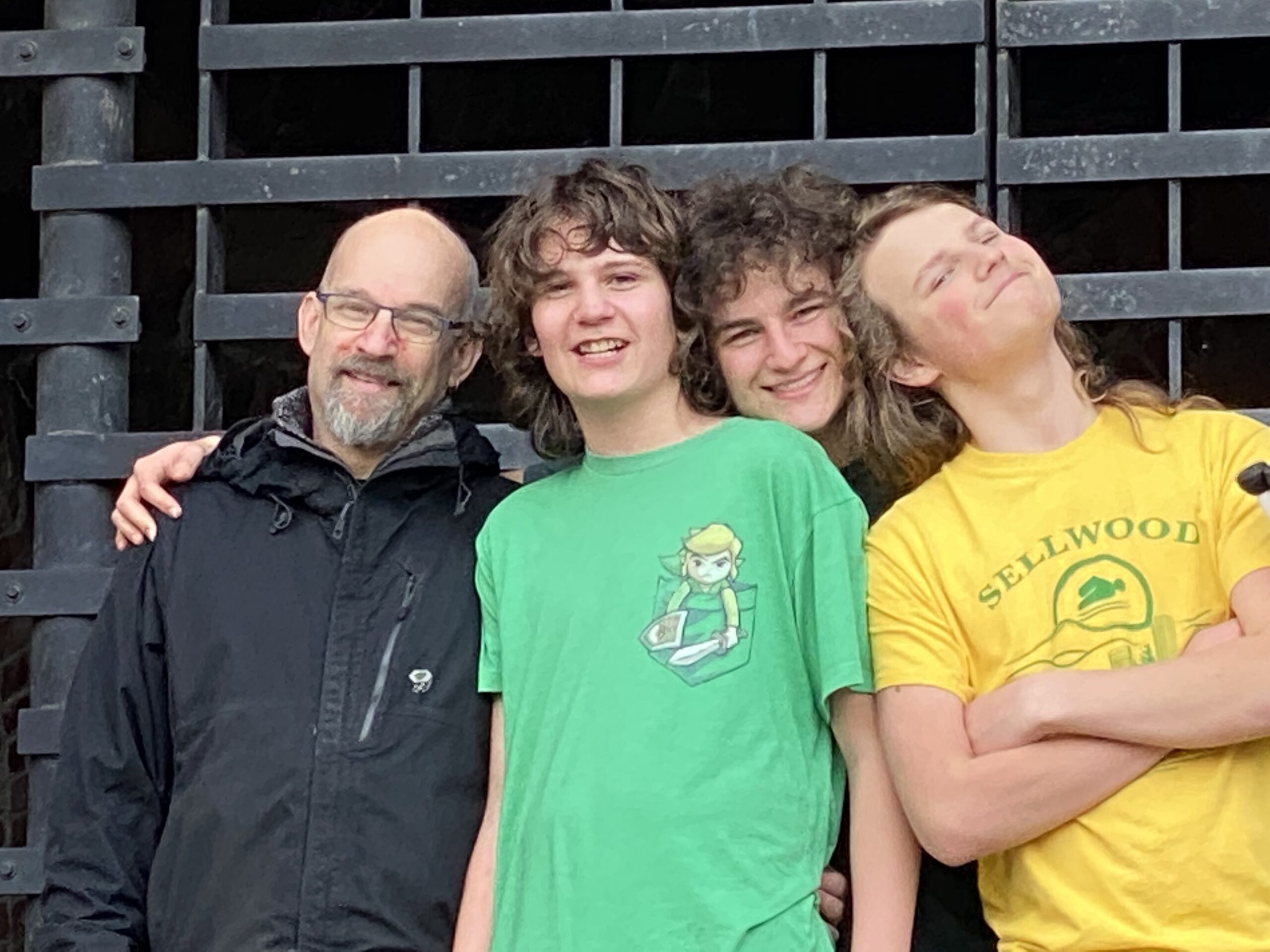
Reason for the haircut (result of lack of willingness to shower) — April 2020:
Charlie after the “unusual” haircut (he insisted on keeping it long in the back):
Fast forward to today…
Without the pressure of needing to be anywhere at any specific time (like school) — or to do anything anywhere out in the world — I have been working with Charlie since August (after the haircut) on getting into the habit of showering on a regular basis. While we drove across the United States in August and September, I was able to get him engaged in this because showering on the road was more fun than showering at home (showering OUTSIDE at campsites, in different campgrounds, or taking baths in the occasional hotel room was also fun [and relaxing])! So, by the time we got to where we are now (temporary lodging in a log cabin in the woods in Maine — a log cabin that happens to have a really nice hot shower) he was already “hooked!”
Charlie is now showering every two days! “Religiously!” This is AMAZING! I just remind him, “Hey Charlie, it’s your shower day!” and he showers (as long as I don’t “force” (insist), he showers — he has really come to this on his own), only because of the space, and time, and novelty granted by the pandemic! It is so nice to see him have clean hair on a regular basis, and to see his acne clearing up. He’s also so much happier after he showers AND he is super proud of himself for taking this on (he likes that it makes him look nice to wash and brush his hair!). Picture below is of Charlie tonight (after his shower!).
Most parents take these things for granted.
I wanted to share these two very personal things with you (the “showering” achievement, and the “sleeping alone” achievement) because most people don’t understand the huge additional physical and metal toll it takes to have disabled children. I wrote this because I wanted to give you a glimpse into what it is like to live with disabled children and the differences that it means — things you might not think about if you have neurotypical children.
Yet another example: I only stopped wiping other people’s bums 100% about a year ago (when Charlie was 11!), and that’s a huge disconnect, too! Other parents just could not understand — imagine wiping the bum (daily) of a child who is taller than you are!
Yet another small pandemic victory: For the last two showers (today and two days ago) Charlie has not only showered on his own but he has also washed his own hair (amazing!). Prior to this week, I always had to help him wash his hair (and if I did not do that he would skip washing his hair entirely during his self-directed showers!). So for the past 12 years… Every. Single. Shower. I was responsible for making sure he was clean and his hair was washed. This is NOT easy to do when your kiddo is more than 7 inches taller than you (and you need to reach up to make sure his hair is well-shampooed!).
Now it is time for Charlie to move onto learning other skills. I learned today that when he washed his hair two days ago he used about 1/3 of a bottle of shampoo — so our next skill to focus on is “how to use shampoo and conditioner” (including how much to use) when you are washing your hair without help. But frankly, I am fine spending $2 per wash (because he used about $2 of shampoo with that one wash!), if that puts him on a path towards greater independence. Without the pandemic giving us “space” I don’t think he would be achieving these milestones and nailing these skills so quickly. I am so damn proud of him right now! (Also next up: learning to tie his own shoes, and then — getting himself a snack without help!)
Thanks for reading. Thanks for being here. As always, please let me know if you have any questions and I will do my best to answer them personally as soon as I have a moment (when I am not cleaning up after kids, doing dishes, laundry, making food, or any of the other things that fill up my every moment when I am not working during the pandemic)!
Tamara Rubin
#LeadSafeMama
P.S. Charlie’s also now regularly brushing his teeth on his own TWICE a day (all by himself, in the morning and at night!). So many little victories recently. Thank you again, pandemic!
Charlie — tonight, 12/5/2020 (he’s so proud of his long [clean!] hair!)
Never Miss an Important Article Again!
Join our Email List








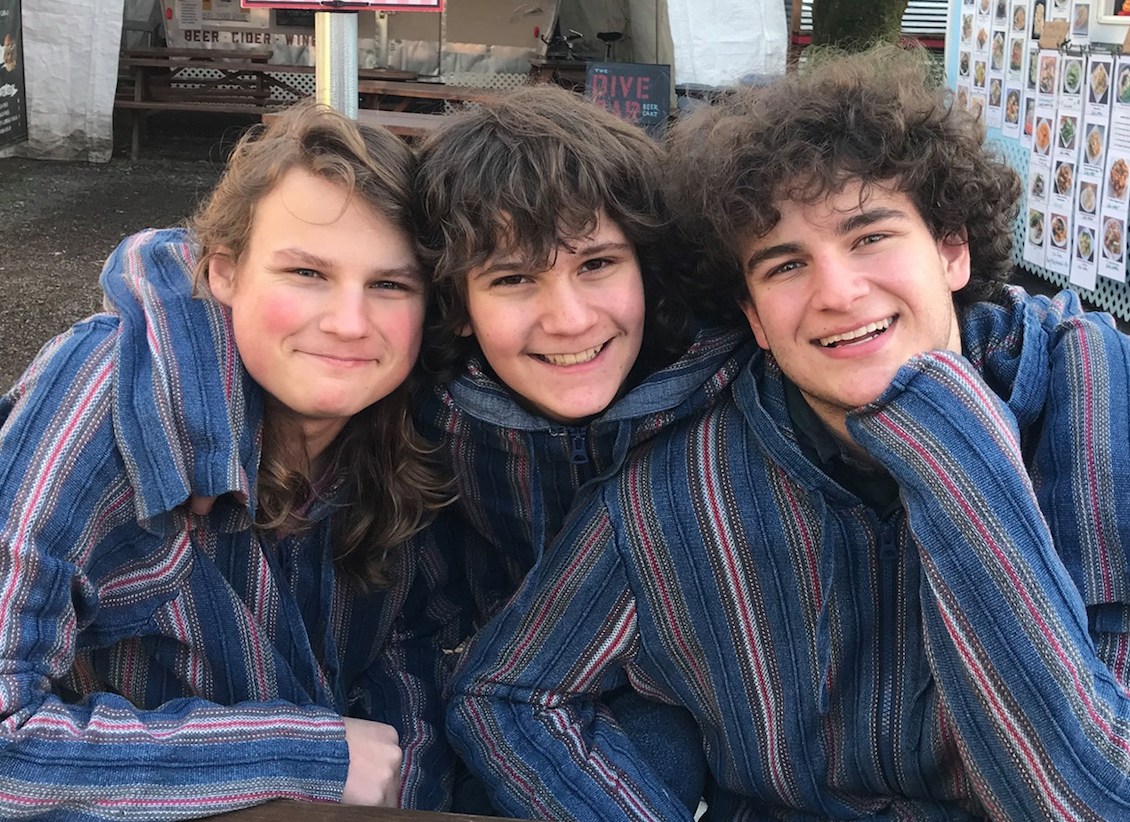
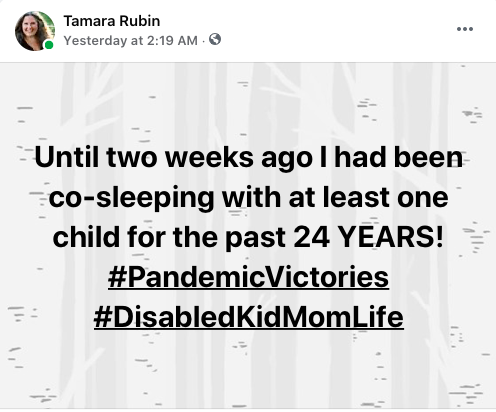
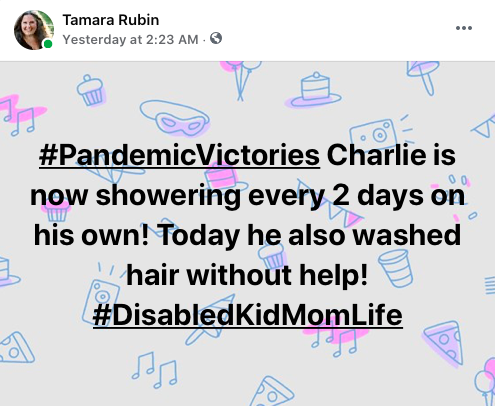
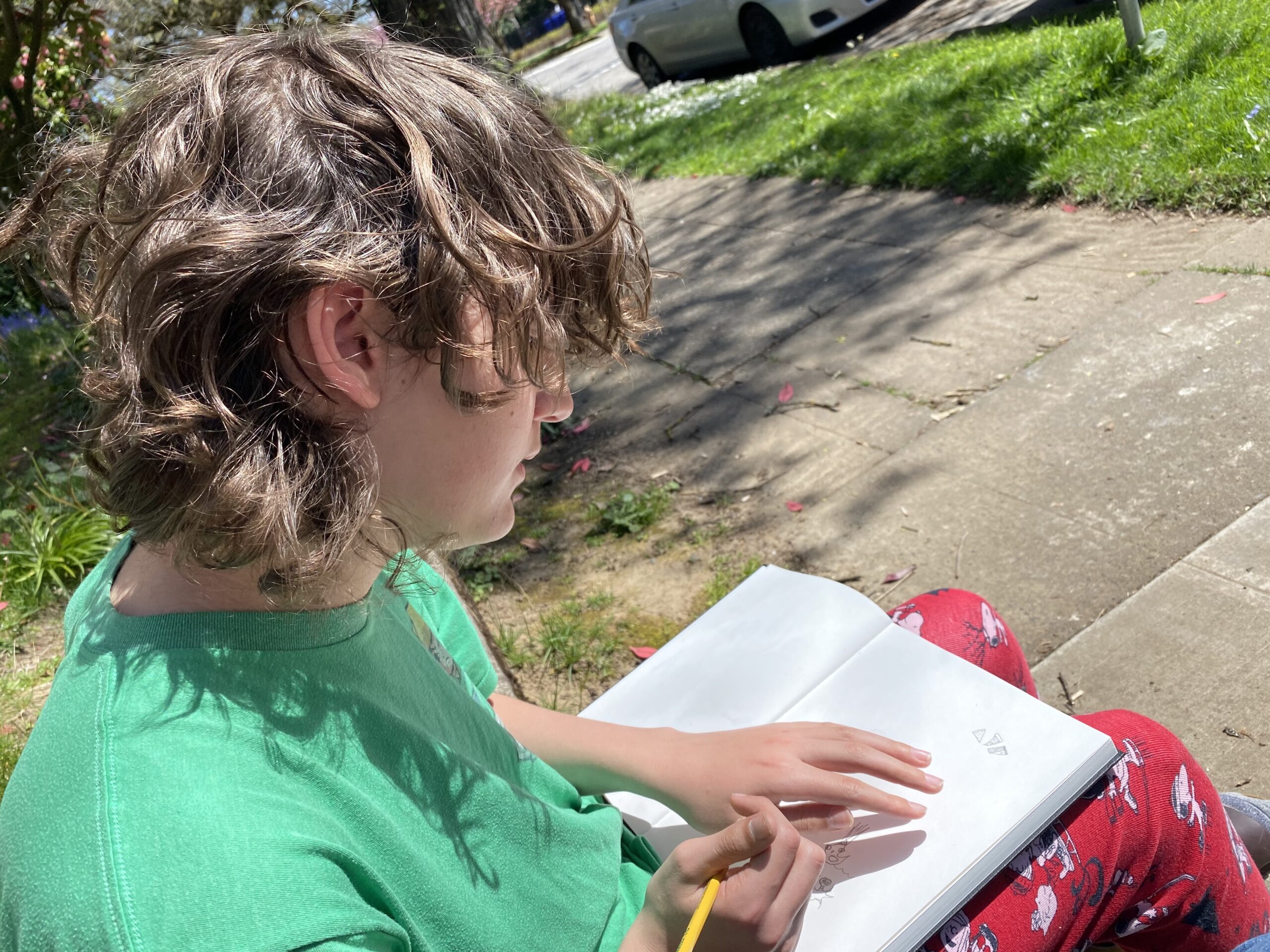
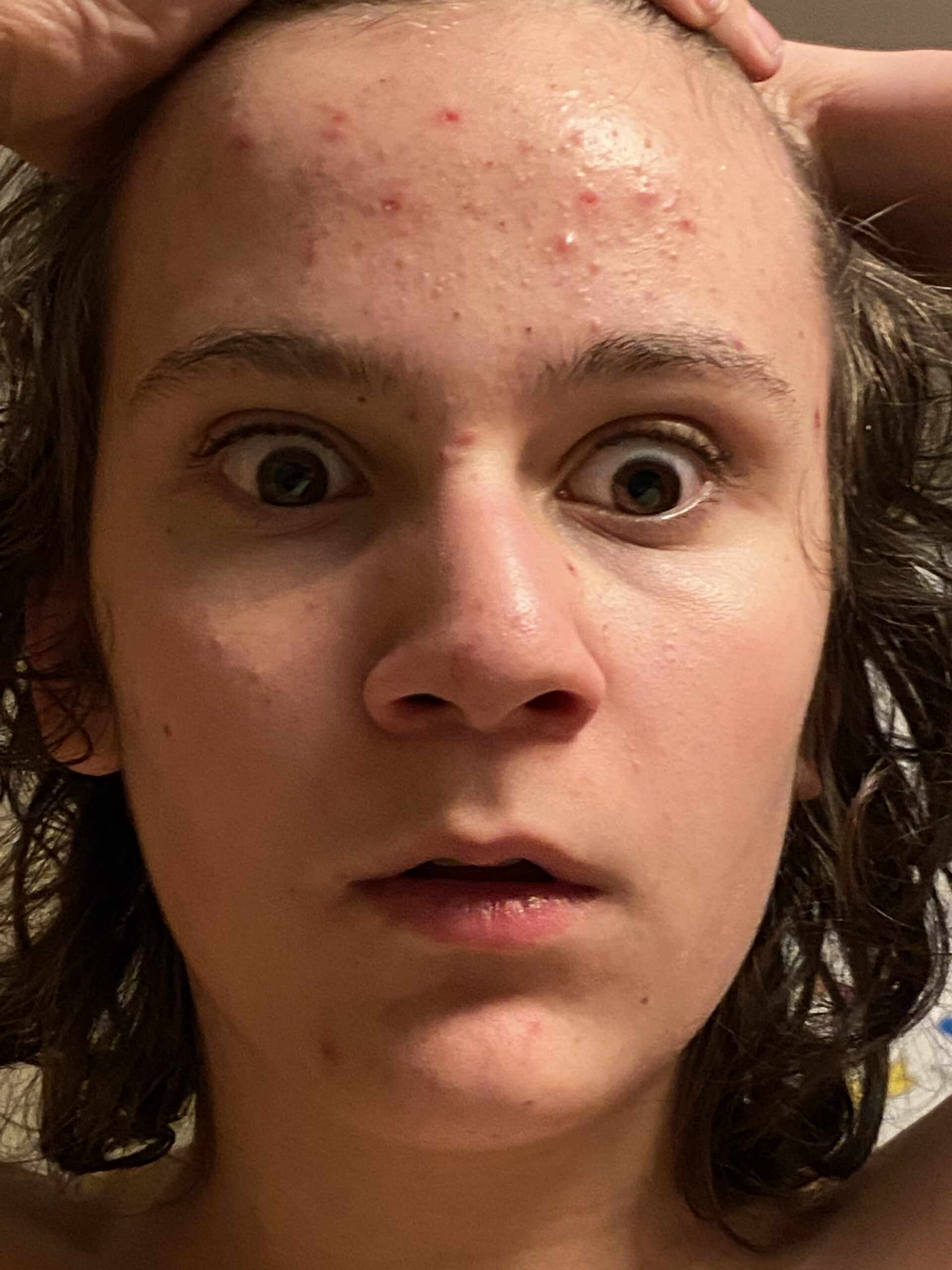
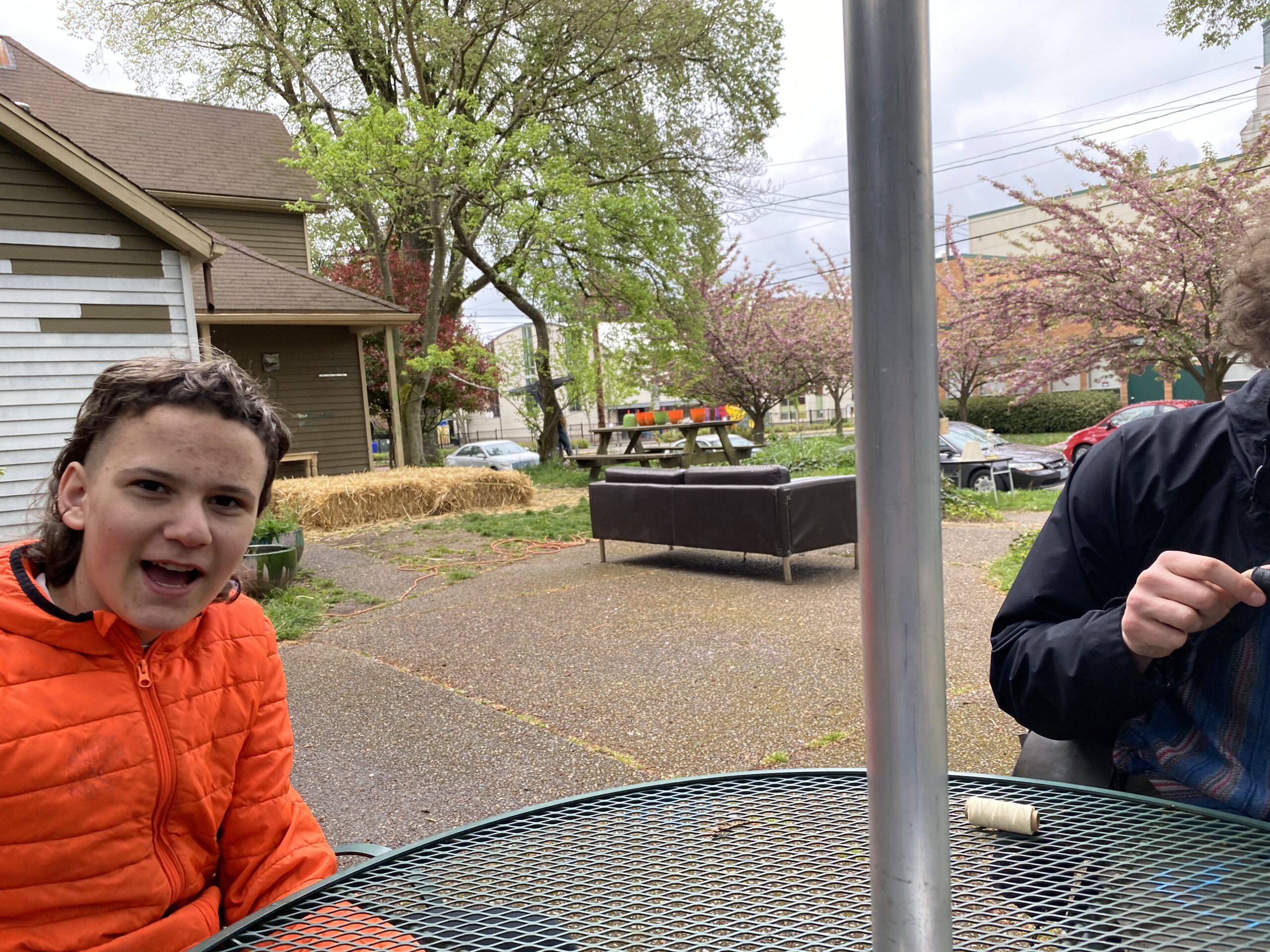
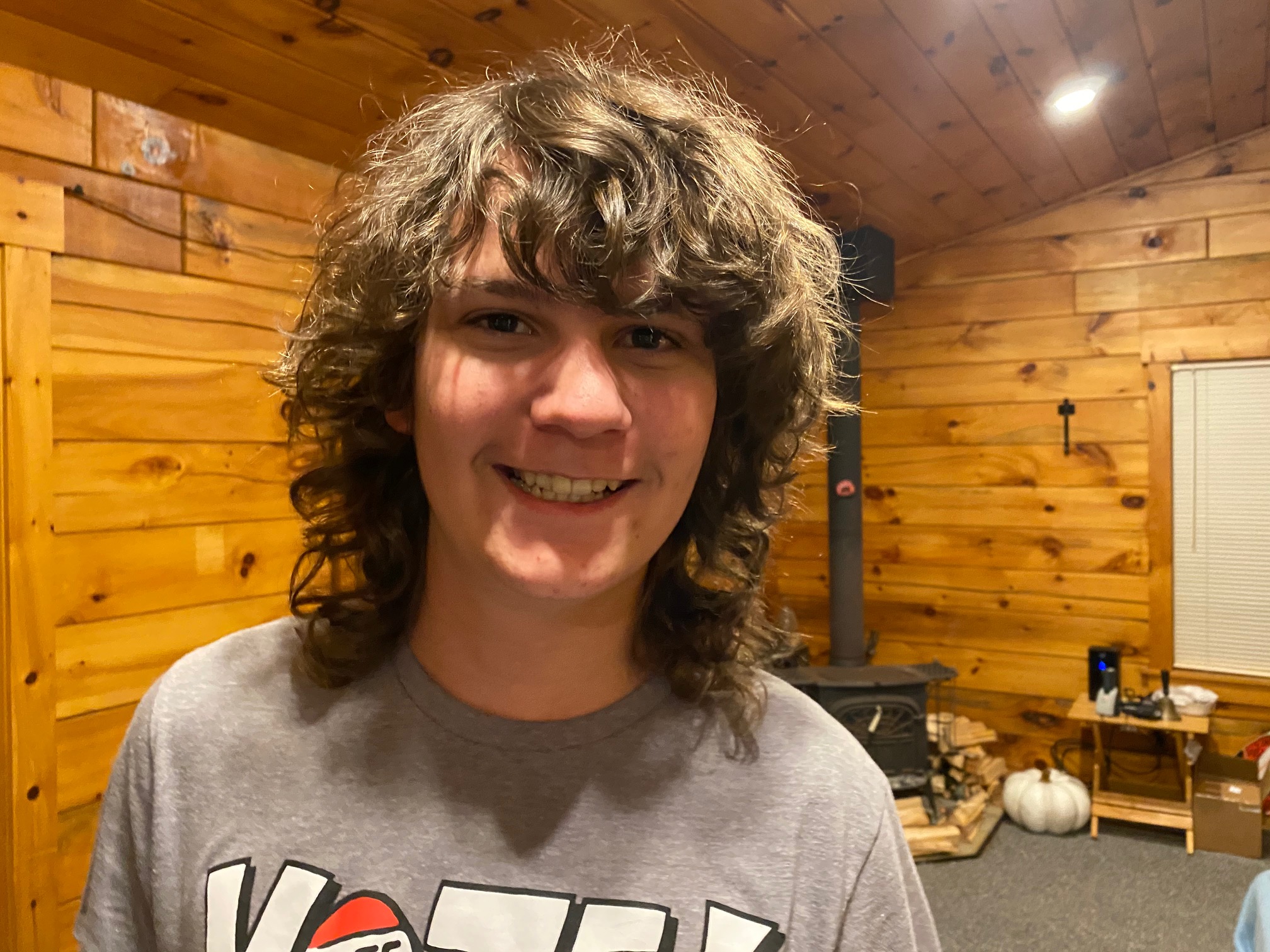

We do what is best for our children and families. I nursed my first for 2.5 years although family and friends gave me a hard time about it. As I got older, the term “you do you, I will do me” has become part of my daily practice. I cannot compare my family or children to another family. Just because something seems to work for someone else’s family, it does mean it is the norm. My oldest co-slept with us for about 8 years. It was a struggle. We moved to a new home when he was 7 and we had a couch in our bedroom, so he slept on the couch or a while. He soon found a love of Harry Potter and listening to the books each night and gradually he decided he liked sleeping in his own room listening or reading to his books until he fell asleep. He can stay up until 11/12 until he finally passes out from reading. He is the kindest sweetest boy and as his momma it is my job to help support him be his best. Does he like showers – nope. But in the summers I am blessed with having a pool and living near the ocean. During the winter he has gotten better about showering but it was not an easy task. He does not like his hair being washed – so we compromised with longer hair on top and shaved on the sides. Comprising has become my strong skill.
My daughter is 6 and just recently started sleeping in her own. She loves sleepovers in our room but the transition back to her bed is not easy.
Both of my kids are vivid readers and crave their Audibles. My daughter finishes her remote school and runs to her room to listen to her next book. We max out our monthly
Hoopla accounts with our library
For my family having Echo Dots around the house to resume their Audible books has become a lifesaver and helped encourage both little humans to transition to their rooms.
Keep being strong, momma! You are amazing and I love all that you share with us. You have changed our lives in the last 5 years.
Marissa
Thank you for commenting Marissa!
Wow, Tamara, Marissa,
I had no idea…What incredible Warriors you are to take on and succeed on a such a difficult path that is so not understood by the outside world. I am so glad you are out there sharing your normal so others don’t feel alone in supporting their children with special needs.
-I bow to you,
Ruby Two Shoes
Thanks for the post. I wondered whether Charlie ever had the same test that Avi had in the film to confirm
Do you mean a full neuropsychological eval? Yes – Charlie has been fully evaluated… lots of paperwork and rounds of testing. All equally exhausting.
T
Yes, that’s the one. I wondered whether it was possible to definitively attribute a person’s symptoms to lead poisoning/brain injury in a case like Charlie’s, that was low-level. It seems like you have done this. I am frightened about the future and wonder if this is something we should look into.
Thanks again for the post and for sharing the everyday, unseen effects of this ‘silent epidemic’.
Hi Odette,
In Charlie’s case I did not see Dr. Lidsky (they top expert that is knowledgeable in linking symptoms to Lead exposure) and did not seek validation that his symptoms are definitively attributable to directly to his Lead exposure. At that point I had done enough research myself (and had enough experience with my two middle sons) to clearly identify the links.
Tamara
Thanks for sharing this very personal story of your struggles. I had no idea it could be this challenging for parents of lead poisoned kids.
Thank you for this story, and your important work. Have you ever posted the story of the initial lead poisoning incident? That would be of great interest.
Hi Barbara – that is discussed in detail in my documentary feature film: https://youtu.be/eRKlaC2EjL0
Tamara
I notice that many improvements came after you moved. It might be useful to track what improvements happened where. I know that lead hit your family hard, but it sounds like there are environmental factors such as mold at work.
Hi – We actually haven’t “moved” – lol, we’re just temporarily displaced!
Check out Susan’s work on her site,
http://www.debugyourhealth.com/
Note that there is nothing to buy at this link, she just shares her experiences.
Good luck to everyone!